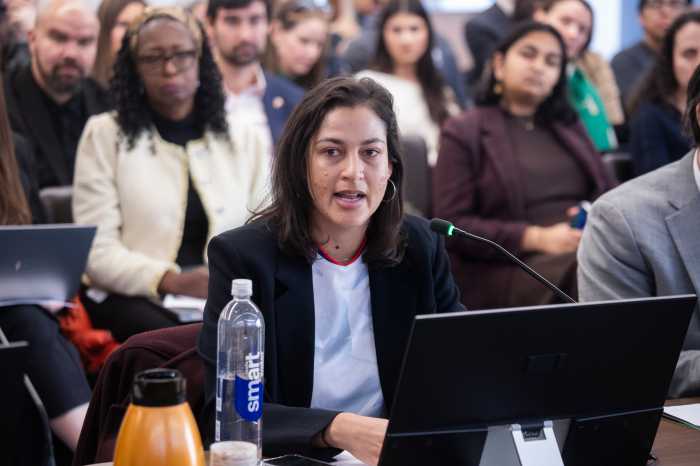Over 100 counselors who treat both the abused and the abuser shared their approaches to a problem that has soared in the U.S. over the years. According to Lilla Pennant, director of training for Walk the Walk, an agency devoted to helping the abused elderly, there are an estimated 670,000 cases of elderly abuse in the country, but one in 14 cases goes unreported. In New York City, there are a reported 100,000 cases of abuse.
The inner turmoil of the abused elderly was best reflected in the display of T-shirts that stood as a constant reminder of the national tragedy of abuse so prevalent in the U.S. One victims dispiriting comments, inscribed on a T-shirt, read:
"I feel guilty. Guilty if I leave. Guilty if I stay."
Another filled with anger wrote: "We are the women of violence. We wont take it anymore."
Pennant told the assemblage of social workers that a barrier exists in treatment because of the stigma of psychiatry. She said abuse was a serious manifestation of serious dysfunction.
"Too many people take the hurt and then withdraw," she said.
Enid Miller, director of the Partner Abuse Counseling Program at the Samuel Field YM & YWHA, agreed.
"Its not easy for survivors to speak out. Home should be a safe haven for family members."
Miller cited her list of safety measures elderly at risk should take. They include letting trusted friends know your situation, call the abuse hotline or 911 in a crisis, have a cell phone accessible, arrange temporary shelter help before a crisis, get an order of protection from the courts and keep the car backed up in the driveway for a quick escape. She also advises stockpiling a camera and taping an extra set of keys to the tail pipe of the car or under a trash can.
"Its advisable to have a picture of the perpetrator," she said, "so that police can more easily identify him."
Miller said "exit strategies" were important. He instructs her clients to find a 24-hour diner where they can go to collect their thoughts over a cup of coffee.
Sue Humphries, coordinator of social work services at the New York City Alzheimers Association, described the plight of dementia patients and their caregivers. She said abuse occurs in two forms, intentional and unintentional.
"Sometimes a family member takes advantage of the patients disease and abuse occurs," Humphries said. "Often, however, the caregiver is the focus of the abuse."
The Alzheimers group has a 24-hour help line #, (212) 983-0700.
Abused dementia patients are easily victimized, Humphries said.
"We have had cases," she said, "of sufferers being tied to a chair, put in a locked room and targets of demeaning insults and threats."
She observed that Alzheimers patients are victimized by scam artists who win their confidence and then empty their bank accounts.






























